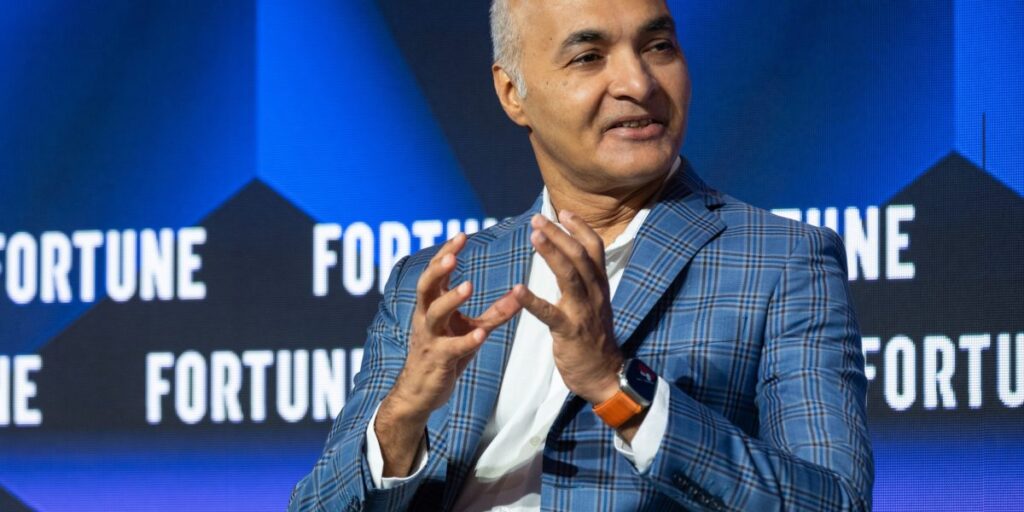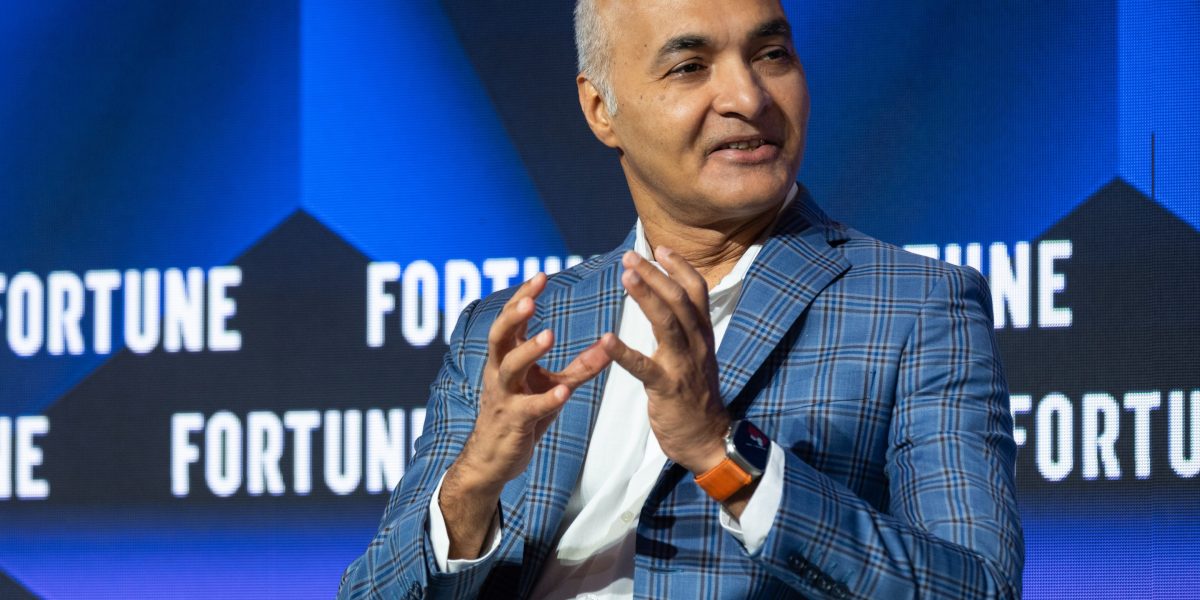AI will transform even the humble PC, tech leaders say, as the hardware story moves beyond just data centers
An AI story focused on the cloud “has limitations in terms of how much it can reach,” sad HP Greater Asia managing director Vinay Awasthi.


The hardware that’s powering the AI boom is the kind that consumers will never see.
AI programs like ChatGPT run in the “cloud,” or, more specifically, in data centers where racks of servers and processors house data and run the AI models trained on that data. The hardware companies that benefit are those that serve these data centers, like Nvidia (up over 140% so far this year) and Super Micro Computer (up over 140% year-to-date as well).
But hardware executives at Fortune Brainstorm AI Singapore said on Wednesday that the AI revolution will soon spread to smaller devices, particularly the personal computer.
“If you look at the AI story so far, it has mostly been data centers and cloud centric. While it’s a powerful story, it has limitations in terms of how much it can reach,” said Vinay Awasthi, managing director of Greater Asia at HP.
AI use cases will proliferate in a “massive” way over the next few years, he said, and that will require individuals, businesses and governments to upgrade their PCs.
“This is going to be a massive effort to provide AI PCs, because the foundation of AI is the need for a higher magnitude of computation,” Awasthi said. Current PCs today are about four to five times less powerful in terms of computing power than what’s ideally needed in the coming years to handle AI, he explained.
“AI has been adopted in all industries in almost all walks of life,” said ST Liew, Qualcomm vice president. That will lead to hybrid AI where the workload is shared between devices and the cloud, he explains.
2024 is “when the PC [will be] reborn,” Liew said.
The U.S. chipmaker, which has traditionally been a smaller player in the PC market, has now upped the stakes with its AI-focused Snapdragon X series chips. The Snapdragon chips are in PCs with Microsoft’s Copilot+.
Both Qualcomm and HP will benefit from a new PC upgrade cycle. Qualcomm designs chips that go into mobile devices and computers, while HP sells PCs.
Other PC manufacturers are also talking about AI PCs, with Lenovo suggesting earlier this year that AI laptops will soon “transform user experiences.”
Microsoft is also trying to push AI applications onto PCs, launching its Copilot+ PCs in May. CEO Satya Nadella suggested that PCs will soon be able to “anticipate what we want and our intent.” (The rollout was panned by some critics, and faced scrutiny over security concerns)
Both HP and Qualcomm are also exploring how to make new PCs more sustainable.
HP’s Awasthi said the firm is working on devices that can have 24 to 48 hours of battery life, with improved power efficiency. Qualcomm’s Liew said newer chips have “very efficient power consumption” allowing a user to do more things in a shorter period of time.





